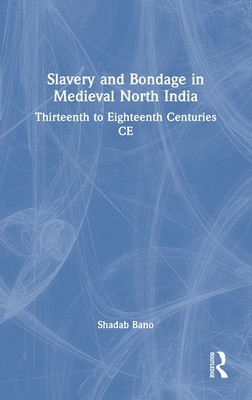
- We will send in 10–14 business days.
- Author: Shadab Bano
- Publisher: Routledge Chapman & Hall
- ISBN-10: 1032778520
- ISBN-13: 9781032778525
- Format: 15.6 x 23.4 x 1.4 cm, kieti viršeliai
- Language: English
- SAVE -10% with code: EXTRA
Reviews
Description
This book examines slavery in India from the Turkish conquest of North India to the centuries of Mughal rule. It focuses is on the northern Islamic regimes' treatment of slavery but not limited or determined by the actions and demands of the ruling class alone. Societies normalized the practices, and the norms were socially constituted, which included slaves' acceptance, resistance, and use of agency in the process. It shows how the transformations on the ground made the social-economic and ethical environment of slavery no longer the same over the centuries and the expansion or contraction of slavery corresponded to the structural changes and ethical developments specific to the Indian milieu.
The volume will be of great interest to scholars and researchers of South Asian studies, history and slavery.
EXTRA 10 % discount with code: EXTRA
The promotion ends in 23d.20:08:54
The discount code is valid when purchasing from 10 €. Discounts do not stack.
- Author: Shadab Bano
- Publisher: Routledge Chapman & Hall
- ISBN-10: 1032778520
- ISBN-13: 9781032778525
- Format: 15.6 x 23.4 x 1.4 cm, kieti viršeliai
- Language: English English
This book examines slavery in India from the Turkish conquest of North India to the centuries of Mughal rule. It focuses is on the northern Islamic regimes' treatment of slavery but not limited or determined by the actions and demands of the ruling class alone. Societies normalized the practices, and the norms were socially constituted, which included slaves' acceptance, resistance, and use of agency in the process. It shows how the transformations on the ground made the social-economic and ethical environment of slavery no longer the same over the centuries and the expansion or contraction of slavery corresponded to the structural changes and ethical developments specific to the Indian milieu.
The volume will be of great interest to scholars and researchers of South Asian studies, history and slavery.


Reviews